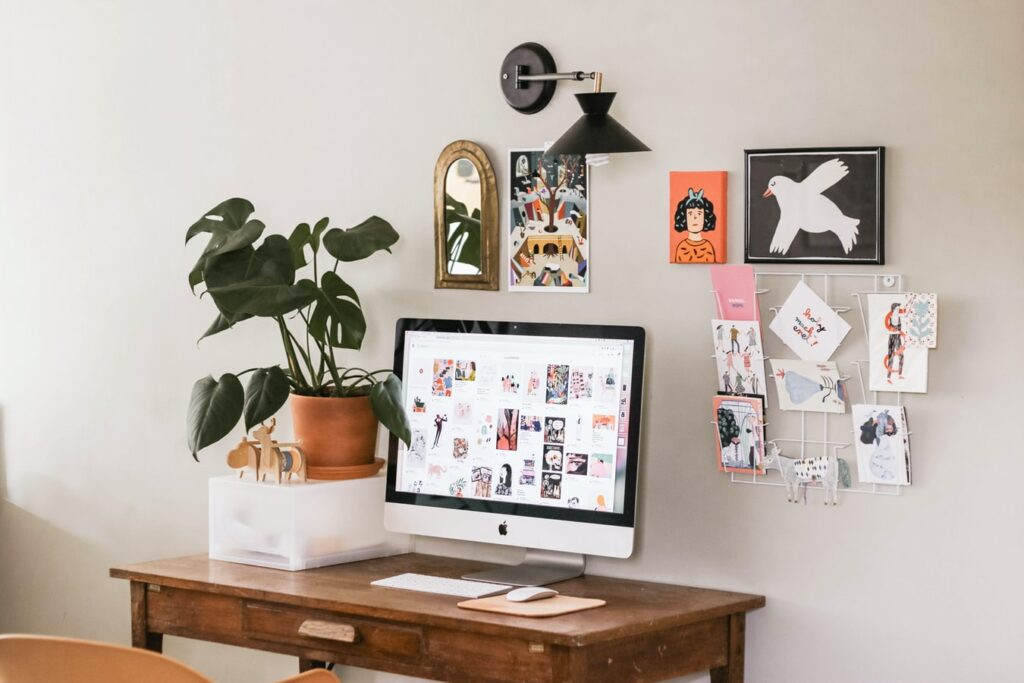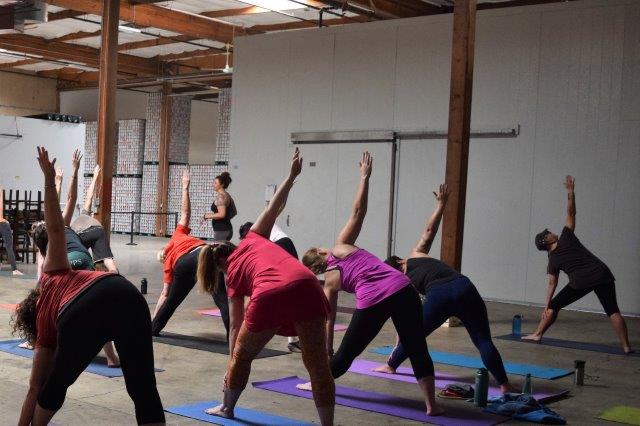Telecommuting has been around for decades and dates back to the 1980’s when tech giant IBM installed “remote terminals” in the homes of many employees. However, the COVID-19 pandemic has required a large percentage of the United States’ labor force to work from home during the past year. This has been due to stay-at-home orders that imposed travel restrictions and encouraged social distancing to prevent the risk of coronavirus transmission. As a result, many are working from home; and there is indication that many will continue to work from home post-COVID. Such changes in everyday life can be a disruptor to a good night’s sleep.
Working form home has it’s benefits and drawbacks. Working from home can provide time management benefits like no commute and flexible schedules. On the other hand, factors like stress and anxiety about Coronavirus can still cause a lack of sleep. I’d like to share some tips to getting a good night’s sleep more sleep while working from your virtual office.

Photo by Elsa Noblet on Unsplash
Tip #1: Take a Post-Work Snooze After Shift Work
Some telecommuting and remote workers are still required to work regular shifts, whether it’s daytime or nighttime. Taking a short nap after your shift can give your body battery a quick charge. That, in turn, can help to prevent you from feeling drowsy during the rest of the day.
What are the benefits? One of the main benefits of being home-based is you’ll have a comfy nap space you can use after every shift. You can also boost mental alertness, which is especially important if you need to get behind the wheel later.

Photo by Kinga Cichewicz on Unsplash
Tip #2: Take a Power Nap But Avoid Dozing All Day
Have you ever dozed off during the day then felt groggy when you woke up? That’s because your body didn’t cycle through all four sleep stages. If you didn’t dream, you likely didn’t get to “deep sleep,” known as the rapid eye movement (REM) stage.
Taking a cat nap during the day can help to amp up your energy levels and mental focus. There’s a caveat. Sleep experts often recommend limiting nap time to 30 minutes per day. It’s also advisable not to nap too close to bedtime since it can mess up your internal clock, which could cause you to toss and turn at bedtime.
Tip #3: Make Quality Sleep a Daily Priority
A wrong concept that many people have today is that getting a good night’s sleep is a luxury. In fact, it’s a necessity that can help to optimize your physical and mental processes. There are lots of reasons people don’t get enough restful sleep. For example, people often sacrifice sleep to spend more time on work, recreation, or socializing. That’s a bad move.
At face value, these activities aren’t things you should avoid. However, it’s a problem if you’re not getting enough shut-eye because you’re working late then getting up early.
Even if you’re a homeworker, it’s important to create a clear boundary between work time and relaxing time. There’s a better way! Sleeping well after you choose the right mattress can help to improve all aspects of your waking hours.
Tip #4: Minimize Media Consumption
There’s no question you should get some pandemic updates in these tough times so you’ll be knowledgeable about Covid-19. That said, studies show about 90% of media news is negative. This can cause various problems like stress, anxiety, and sleep deprivation. When working from home, it can be super-easy to get distracted by news alerts from your mobile devices.
Try to control the amount and type of news you consume as much as possible. You could ditch negative news by just accessing “positive news” outlets, for example. Meanwhile, many sleep experts recommend that people stop reading, watching, or listening to news reports by 7:00 pm. This can provide enough time to achieve a positive mentality with good vibes before bedtime.

Photo by Erik Lucatero on Pixabay
Tip #5: Follow a Daily Routine Even Though You’re Not Commuting
Companies offer their home-based employees various benefits like flexible work schedules. This could require them to put in eight hours during a workday.
It’s a good practice is to try to finish all daily tasks by 5:00 pm even if you don’t have a 9-to5 schedule. This will free up more quality time for family, friends, and you.
Try to follow a daily routine as much as possible. This can increase productivity, help you stay focused, and keep your internal clock working –well, like clockwork. Following a consistent sleep-work schedule can help your circadian rhythms to align with environmental cues like sunrise and sunset and help you get a good night’s sleep.
Make sure to follow a workday routine even if you’re just walking to your home office. Wake up relatively early in the morning, eat breakfast, and change out of your pajamas into work clothes. Then get productive!
Tip #6: Go to Bed and Wake Up at the Same Time
Going to bed and waking up at the same time each day can be tougher than it seems when you’re home most of the day. The ongoing pandemic has upended our daily life, including sleep schedules. Here’s the thing: it’s now more important than ever to sleep at about the same time and then get a full 7 or 8 hours of sleep.

Photo by Nancy Zaffaro
Tip #7: Consider Changing Shifts or Jobs
If you’re working the graveyard shift and not getting 40 winks during the day, then you might need to consider changing to the day shift when possible. This will likely be more in line with your sleep-wake cycle.
A Plan B is to take some easy steps to stay awake during the night shift. For example, you can do some light exercise like jogging around your workstation. Try some easy yet effective office exercises.
Tip #8: Create a Work/Life Balance
One-quarter of Americans report that work is their top stressor, according to The American Institute of Stress. It’s important to take time to de-stress and relax, whether it involves family time, pursuing a hobby, or taking a summer vacation.
Creating a yin-yang balance in life can help to reduce stress and anxiety during the corona crisis. Sure, you can save time by ditching work uniforms and commute times. On the other hand, it doesn’t mean you have to work all day. Observe your work hours to make sure you have enough time for rest and relaxation.

Photo by Engin Akyurt on Pixabay.
Tip #9: Take Regular Breaks During the Day
Just as when laboring on-site in a physical office, when working at home it’s important to avoid sitting all day. Health experts recommend not staying in the same position for over 30 minutes.
There are several steps you can take to take a break:
- Stand up
- Do light stretching
- Take a walk outdoors
- Make a healthy snack
- Lie down for a while
Conclusion: A Good Night’s Sleep and Working from Home
Stanford University reports that during 2020 over 40% of the U.S. workforce worked from home full-time. Telecommuting during these challenging times can upend daily schedules and affect sleep quality. There’s some good news! The above-mentioned tips are some of the best ways to maintain a regular sleepy time and sleep tight during the new normal.

Photo by fancycrave1 on Pixabay.
For More:
On our site: Maintain Healthy Sleep While Traveling
On our site: 10 Health and Wellness Tips for Frequent Travelers
-All photos as credited. Cover photo by Mabel Amber on Pixabay.


